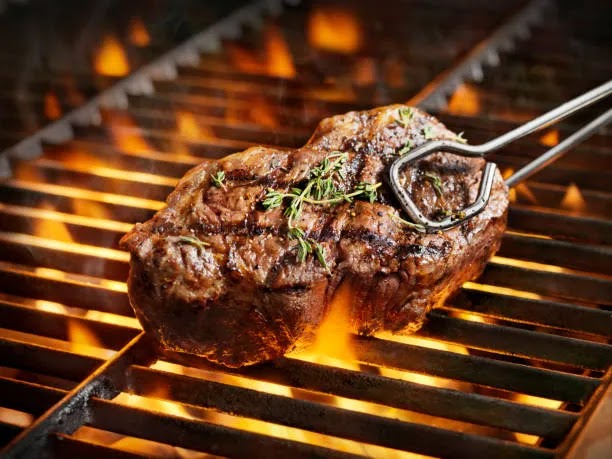The Fourth of July is coming up next weekend. Many Americans with large suburban backyards have undoubtedly already started loading up on charcoal bags in anticipation of the big BBQ. Should you be concerned about consuming grilled meals over the holiday weekend?
Some items, such as Romaine lettuce, pineapple, plantains, and endives, taste better when grilled. Even yet, you've undoubtedly heard at least once those grilling foods over a bed of charcoal can increase your chance of adverse health effects, such as cancer.
What's the good news? According to current research, this may only apply to meat and not to fruits or vegetables. Charcoal isn't carcinogenic in and of itself; the problem is when used to cook foods. The first problem is that when grilling food, charcoal aids in the creation of extremely high temperatures. The second danger is that charcoal produces much smoke. When these hazards are combined, they can cause cancer, especially when cooking meat.
When muscle meat, such as beef, pork, fish, or poultry, is cooked at high temperatures, such as pan-frying or grilling, two compounds are termed heterocyclic amines (HCAs), polycyclic aromatic hydrocarbons (PAHs) develop, according to the National Cancer Institute. These substances have been proven to be mutagenic in lab tests, which means they can create DNA changes that increase cancer risk.
As a result, the charred outside of a cooked chicken drumstick denotes the formation of HCAs. High temperatures cause amino acids in meat to react with creatine (an amino acid), forming the chemical. The only foods that naturally contain creatine are meat and fish, so grilled fruits and vegetables are typically considered safe to eat.
When beef juice drips onto coals or other hot metal surfaces, it can create flames and smoke, resulting in PAHs formation. This substance adheres to cooked meat. Keep in mind that PAHs can be inhaled from various sources, including motor vehicle exhaust, cigarette smoke, and wood smoke.
According to the National Cancer Institute, a high intake of well-done, fried, or grilled meats has been linked to an elevated risk of colorectal, pancreatic, and prostate cancer in various epidemiologic studies.
Here are four strategies to lower your chances of being exposed to both substances.
Turn the meat frequently.
Compared to the meat that isn't rotated as often while on the grill, flipping meat while it sits above an open flame may aid to lessen HCA development. If possible, avoid charring by grilling at lower temperatures.
Remove burnt meat from the pan.
If charring occurs, take off the charred areas of the meat to limit your HCA exposure. To minimize PAH exposure, avoid using gravy produced from pork drippings.
Instead of red meat, grill fish.
Because red meat and processed meats such as hot dogs are heavy in fat, they drip more onto the coals, increasing your risk of PAH exposure. Furthermore, these meats require more time on the grill than lean meats like chicken, turkey, and fish. While this does not eliminate your chance of HCA exposure, it does cut it significantly.
Grill more fruits and vegetables.






